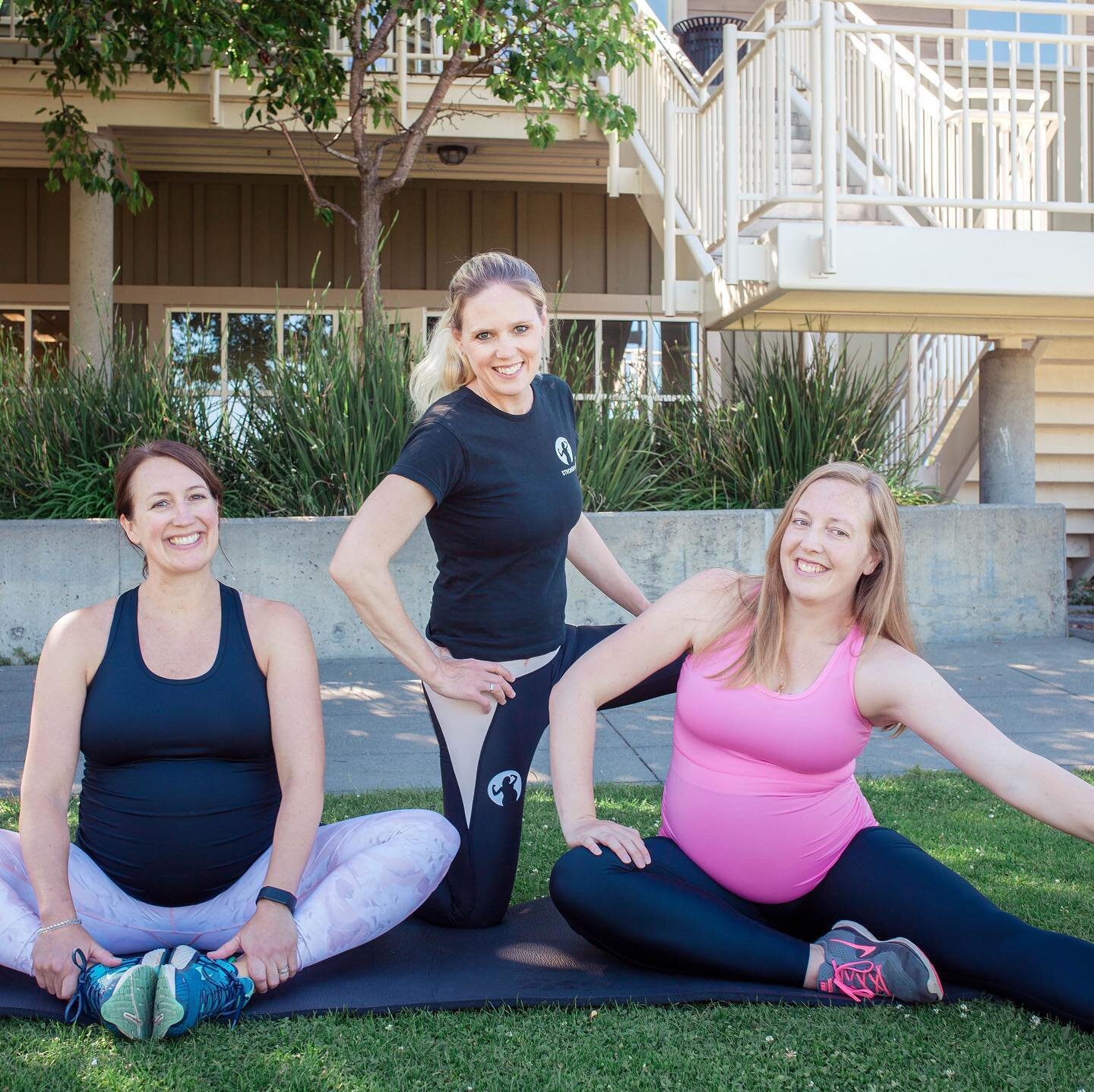How to (Safely!) Workout in Each Trimester
Coach Tilda is back to share specifics on how to approach fitness throughout your pregnancy. Read on for her expert advice on modifying movement for each trimester — and what you should be mindful of throughout.
Many expecting moms share concerns about what exercises are “safe” to do during pregnancy. While the exact workouts will need to vary per trimester, I always make it a priority to focus on these 3 things:
Strengthening postural muscles
Activating the deep core muscles
Hip stabilization
Keeping these areas strong and stable can help prevent injuries like lower back pain, pelvic pain, and abdominal/pelvic floor injuries.
First Trimester
During the first trimester, some lucky clients feel as good as they did before they were pregnant. Others might not feel so hot, and may have nausea or low energy. This varies per individual, and can even vary per pregnancy.
Your workouts in this trimester can be completed depending on how you’re feeling. My general advice is to continue with your current workout plan as long as you’re feeling good. Light exercise— especially an easy walk, some stretching or light strength training— can also be a great medicine for morning sickness.
Consider incorporating postural strength exercises in this trimester. These are exercises that strengthen your core - the abdominal and low back muscles that connect to your spine. This will be key in preventing lower back and pelvic pain.
Second Trimester
If you weren’t feeling great in your first trimester, things might start looking up here. Don’t be surprised if you find yourself having more energy and stamina.
Keep your cardio workouts at a moderate intensity. I usually continue my clients on their current strength routines but will incorporate modifications for growing bellies. For example, rather than performing exercises on their backs, I’ll put them in an upright or seated position to protect their abdominal muscles and pelvic floor. Swap planks, crunches, and sit-ups for movements that stabilize the core and hips.
Third Trimester
Time to dial down the intensity. This trimester is all about preparing for a smooth labor and delivery process.
I prioritize stretching and mobility, breathing techniques, and mental visualization.
Fourth Trimester — Postpartum
While you’ll still want to keep the intensity low, the focus here is to rest, recover, and reconnect with your body.
Postpartum fitness is not a competition. Don’t put pressure on yourself to lose the baby weight or “get your body back”. It’s going to take time to heal and retrain your muscles to function optimally.
In Every Trimester
Don’t underestimate the power of the breath. Taking deep breaths strengthens our deep core muscles, which are critical for a smooth labor, delivery, and postpartum recovery process.
These muscles include the diaphragm, transverse abdominals, pelvic floor muscles, and deep back muscles. They work together to prevent injuries and protect our core, back, and pelvic floor muscles. As your baby grows, there’s increased pressure on the belly, pelvic floor, and diaphragm, which makes it harder to take a deep breath.
Practicing deep breathing can help during the labor phase, as well as reactivate your deep core muscles and pelvic floor muscles after labor.
ABOUT TILDA
Tilda is co-founder of STRONGMom, a pre/postnatal fitness app that provides all moms with the tools to have a strong and healthy pregnancy and motherhood.
Find us on social media @strongmomapp and @coachtilda




























